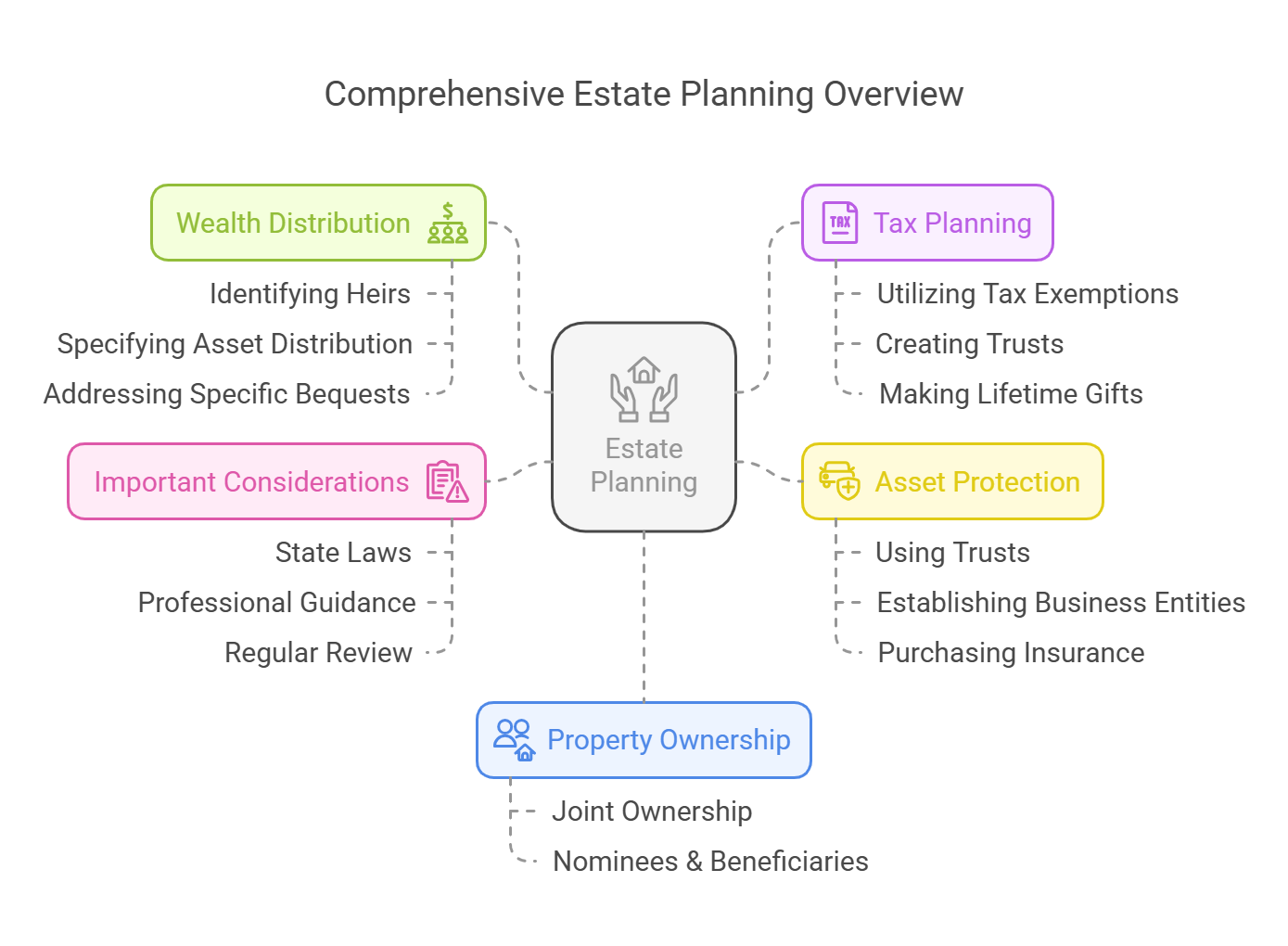Estate Planning
Ensuring a Smooth Transfer of Wealth
Estate planning is a critical but often overlooked aspect of wealth management. It ensures that your assets are distributed according to your wishes and in a tax-efficient manner, protecting your loved ones and legacy.
- Definition: Estate planning is the process of structuring the transfer of assets to heirs and beneficiaries after an individual's death, aiming for efficiency, minimization of taxes and associated expenses, and adherence to the individual's wishes.
Fundamentals of Estate Planning
-
Wealth Distribution:
-
Explanation: Deciding who will receive which assets. This involves creating a plan for distributing your assets to your desired heirs and beneficiaries.
-
Key Aspects:
- Identifying heirs: Determine who you want to receive your assets.
- Specifying asset distribution: Decide how you want your assets to be divided among your heirs.
- Addressing specific bequests: Designate specific assets to specific individuals (e.g., family heirlooms, cherished possessions).
- It must be followed.
-
-
Tax Planning:
- Explanation: Minimizing the amount of estate taxes that your heirs will have to pay.
-
Key Strategies:
- Utilizing estate tax exemptions.
- Creating trusts to reduce taxable estate value.
- Making lifetime gifts to reduce the estate.
-
Asset Protection:
- Explanation: Protecting assets from potential legal claims or creditors.
-
Strategies:
- Using trusts to shield assets.
- Establishing business entities to limit liability.
- Purchasing adequate insurance coverage.
Impact of Property Ownership and Beneficiary Designations
-
Joint Ownership:
-
Explanation: Owning property jointly (e.g., with a spouse) with rights of survivorship ensures smooth transfer of ownership to the surviving owner upon death.
-
Benefits: Avoids probate (the legal process of validating a will), simplifies the transfer process, and provides immediate access to the asset for the surviving owner.
-
-
Nominees & Beneficiaries:
- Explanation: Designating beneficiaries for financial accounts (mutual funds, insurance policies, bank accounts) allows those assets to pass directly to the named beneficiaries upon death, bypassing probate.
- Importance: Ensures that assets are distributed according to your wishes and avoids unnecessary delays and legal fees.
Important Considerations:
- State Laws: Estate planning laws vary by state. It's essential to consult with an attorney or financial advisor who is familiar with the laws in your jurisdiction.
- Professional Guidance: Estate planning can be complex. Seeking professional guidance from an attorney, financial advisor, or tax professional is highly recommended.
-
Regular Review: Estate plans should be reviewed and updated periodically to reflect changes in your financial situation, family circumstances, and tax laws.
 In summary, estate planning is an essential part of wealth management that provides peace of mind, ensures your wishes are honored, and protects your loved ones and assets. It involves a combination of legal, financial, and tax strategies tailored to your specific circumstances and goals.
In summary, estate planning is an essential part of wealth management that provides peace of mind, ensures your wishes are honored, and protects your loved ones and assets. It involves a combination of legal, financial, and tax strategies tailored to your specific circumstances and goals.

No Comments